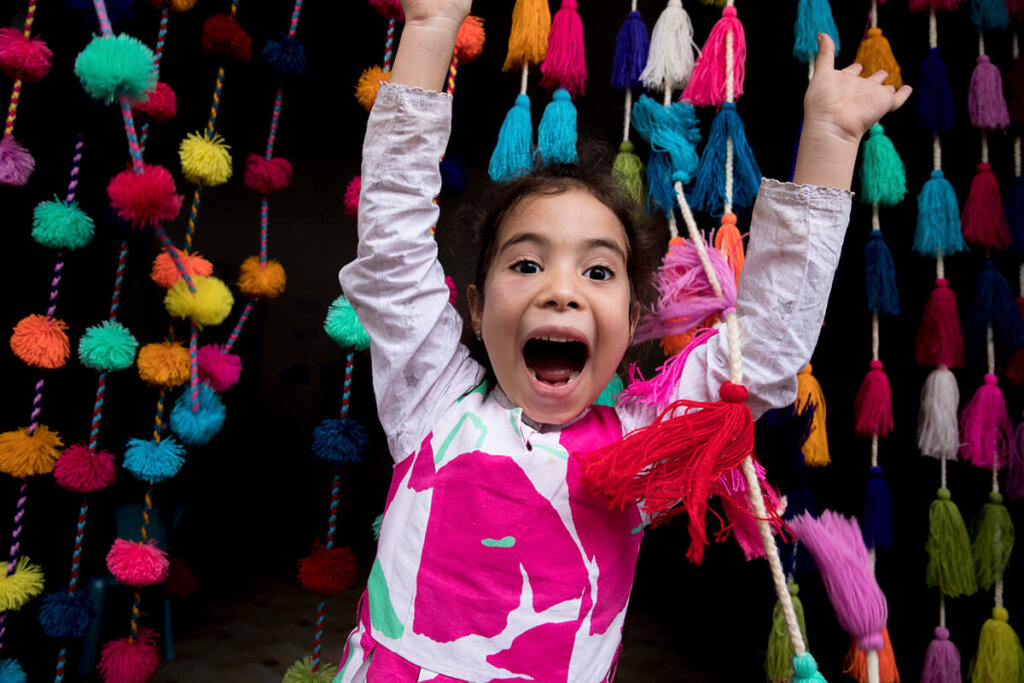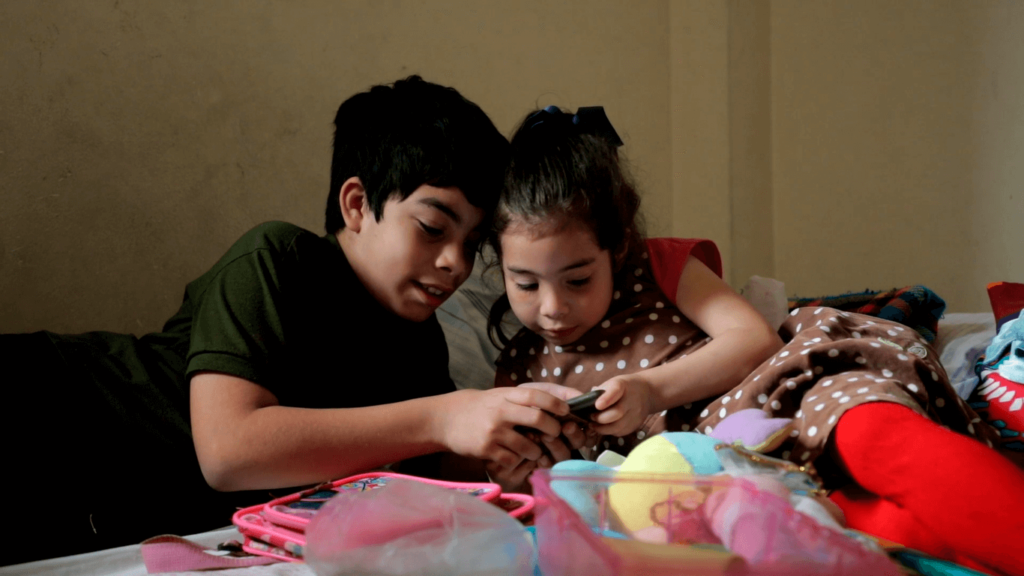Alix*
A family united against adversity
Alix* is five years old. She attends school with his 11-year-old brother Sebastian*. They were both born in Venezuela, but have been living with their parents, brother and grandmother in Lima for the past year and a half. Adapting to a new country and culture is a challenge they take on with family unity.
Alix is a confident, expressive and intelligent girl. She enjoys drawing with her toys around, and playing in the neighborhood park with her brother. She likes having her hair long, having her picture taken and wants to know everything about China and the Queen of England. Everything her mother, Nathaly* (30), bakes is among her favorite food.
“She is a pastry chef and bakes many delicious things. Cookies, cakes, ‘melao’ (sugar cane syrup) and some other super delicious things”.

Nathaly works temporarily doing administrative work while she finds a job in her area of expertise. Every night, when she returns home, she bakes cakes that Valentina, her mother-in-law, goes out to sell on the street to supplement her salary. Valentina*, Alix’s grandmother, at 64, joins the family undertaking without hesitation.
““I’ve never sold anything on the streets in my life, but you do what you have to do. My son says I’m good at it now”.
Despite the joint effort, since Alejandro*, Alix’s father, lost his job, the family’s income has dropped and it is no longer possible to pay rent for the apartment they live in. Soon they will have to move to a smaller place.
A Difficult decision
While Alejandro (42) finds a new job, he takes care of the sons and daughters of neighboring families and teaches them math. He still remembers all the time it took him to make the decision to leave Venezuela. Before the crisis they lived a calm life, however, little by little the situation became untenable. Alejandro found it difficult to divide his family, interrupt his children’s education, leave his home, his neighborhood and his careers.
“We had everything we needed and we were very happy. We felt hopeful. We could go out to eat or go to the movies. Then, things started to change and got worse and worse (…). In the end, we had no choice but to leave, the children had no future there”.
New challenges
Alix’s family is focused on regaining stability and overcoming the difficulties of living far from their home country. Despite the fatigue and worries, Nathaly and Alejandro* make sure that there is play and dialogue at home, that their daughter and son feel safe to develop their abilities.
“Alix is fun and active and likes to talk. Her brother is quieter, very technical, and they get along very well”.
Sebastian likes computers and playing online with his friends from Venezuela and Peru. When he grows up he wants to be a systems engineer, like his dad.
“The move was a little difficult. I have been here for a year and a half. One thing I didn’t like about the move is that I had to leave behind all my friends in Venezuela (…) I like being with my dad, my mom, my sister and my grandmother. I feel happier when I am with my family.“

A safe place
Alix’s family currently benefits from Save the Children’s cash transfer program to assist families in vulnerable situations. In addition, Alix and his brother Sebastian frequently attend one of Save the Children’s child friendly spaces in the city of Lima.
About 20 children from other migrant families attend this place to receive practical, psychosocial and nutritional support. When it is her turn to participate, Alix tells how was her journey from Venezuela to Peru. Her imagination flies so high that she sometimes confuses reality with fantasy. She explains how she arrived in Peru after traveling through Colombia, Ecuador and China! The other children listen attentively. Then it’s time to stretch up and everyone dances.
* Real names were changed as required by the protection policy.
About the intervention:
The project “Immediate Assistance to Venezuelan Families in Emergency and at Risk” has been implemented by Save the Children with support from the Office of Foreign Disaster Assistance (OFDA) and Food For Peace (FFP) of the United States Agency for International Development (USAID). This intervention aims to provide emergency humanitarian aid to Venezuelan migrants in a situation of risk and vulnerability during their stay and transit through Peru. It prioritizes pregnant and lactating women, people with disabilities and/or chronic diseases, families with children under 18 years of age, and older adults.
The areas of the intervention are: child protection, nutrition and health, cash transfer program, as well as humanitarian coordination, information management and communication.
.png)




